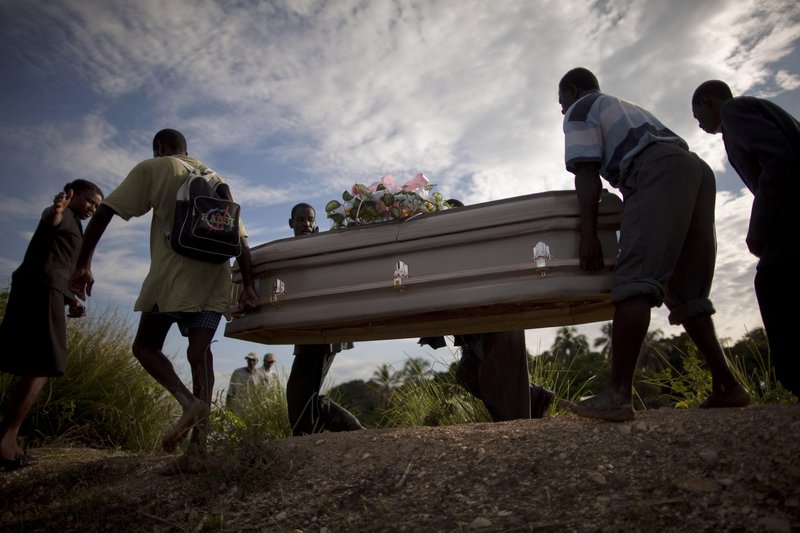PORT-AU-PRINCE, Haiti – A cholera outbreak that already has left 250 people dead and more than 3,000 sickened is at the doorstep of an enormous potential breeding ground: the squalid camps in Port-au-Prince where 1.3 million earthquake survivors live.
Five cholera patients have been reported in Haiti’s capital, heightening worries that the disease could reach the sprawling tent slums where abysmal hygiene, poor sanitation and widespread poverty could rapidly spread it.
But government officials said Sunday that all five apparently got cholera outside Port-au-Prince, and they voiced hope that the deadly bacterial disease could be confined to the rural areas where the outbreak originated last week.
“It’s not difficult to prevent the spread to Port-au-Prince. We can prevent it,” Health Ministry director Gabriel Timothee said. He said tightly limiting movement of patients and careful disposal of bodies can stave off a major medical disaster.
If efforts to keep cholera out of the camps fail, “The worst case would be that we have hundreds of thousands of people getting sick at the same time,” said Claude Surena, president of the Haiti Medical Association. Cholera can cause vomiting and diarrhea so severe it can kill from dehydration in hours.
Aid workers in the impoverished nation say the risk is magnified by the extreme poverty faced by people displaced by the Jan. 12 earthquake, which killed as many as 300,000 people and destroyed much of the capital city.
Haitians living in the camps risk disease by failing to wash their hands, or scooping up standing water and then proceeding to wash fruits and vegetables.
“There are limited ways you can wash your hands and keep your hands washed with water in slums like we have here,” said Michel Thieren, an official with the Pan-American Health Organization in Haiti. “The conditions for transmission are much higher.”
Aid workers are coaching thousands of impoverished families how best to avoid cholera. Various aid groups are providing soap and water purification tablets and educating people in Port-au-Prince’s camps about the importance of washing their hands.
Aid groups also began training more staff about cholera and where to direct people with symptoms. The disease had not been seen in Haiti for decades, and many people don’t know about it.
Members of one grassroots Haitian organization traveled around Port-au-Prince’s camps booming warnings about cholera from speakers in the bed of a pickup truck.
“Many people have become sick,” announced Etant Dupain, in front of the Champs de Mars camp by Haiti’s broken national palace. “If you have a family member that has diarrhea, bring them to the hospital immediately. Have them use separate latrines.”
Send questions/comments to the editors.



Success. Please wait for the page to reload. If the page does not reload within 5 seconds, please refresh the page.
Enter your email and password to access comments.
Hi, to comment on stories you must . This profile is in addition to your subscription and website login.
Already have a commenting profile? .
Invalid username/password.
Please check your email to confirm and complete your registration.
Only subscribers are eligible to post comments. Please subscribe or login first for digital access. Here’s why.
Use the form below to reset your password. When you've submitted your account email, we will send an email with a reset code.